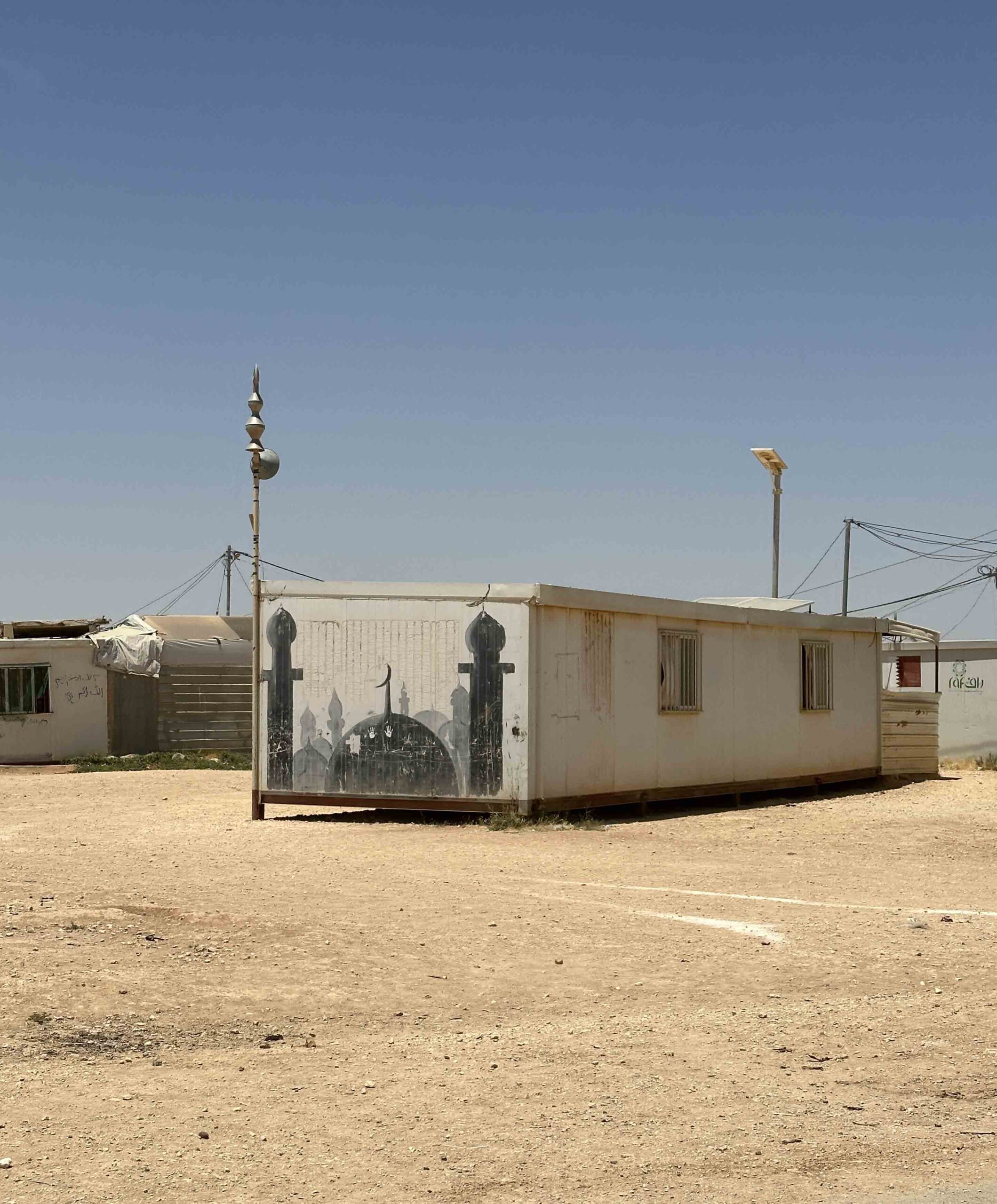Interpreting Ephemeral Heritage of Displaced Communities: Case study of Syrian refugees in Jordan
Maja Jović

Life in Za’atari camp: Prefabricated container turned into a place of worship
THE ENVIRONMENT OF a refugee camp is novel; it does not repeat nor duplicate any environment people who reside there have lived or dwelled in before. If a certain living environment is composed as an assemblage of relations, materialities and politics, then the refugee camp’s environment is one of a kind and so is its heritage.
The Interpreting Ephemeral Heritage research cluster sits at the intersection of several disciplines including: refugee camp studies, heritage studies, post-conflict studies, tourism and architecture. It is led by Dr Maja Jović (University of Westminster) and Dr Aya Musmar (University of Petra). The cluster was initially formed in 2021 under the umbrella of the Regenerating Cities During Crises project, a collaboration organised between University of Portsmouth and University of Jordan and funded by the British Council and Newton Fund.
Cultural heritage is often associated with iconic archaeological sites or widely shared practices, but the last few decades has seen a shift in this thinking to question broadly why it is important, why it is at risk and what can be done to protect it. In the refugee camp environment, there is an added layer of ephemerality and transitioning that the research group is particularly interested in.
At the same time, despite debates on its ethics, there is a continuing rise of interest in dark and slum tourism, and refugee camps are spaces where this type of tourism has been seen to have started to develop. The research cluster was thus formed to interrogate the extent, value and validity of recording and interpreting the ephemeral heritage of these displaced communities.
Jović received QR Funding to travel to Jordan to continue the work to develop this research and visit sites of interest, most notably Za’atari Refugee Camp (in collaboration with International Rescue Committee). She delivered a lecture at the University of Petra on the neoliberal approach to regenerating post-conflict cities, reflecting on decision-making processes and their cultural identity. The workshops she co-organised in Jordan focused specifically on interrogating outsiders’ motivations to visit a refugee camp in an attempt to understand the relationship between the voyeur’s gaze and the ephemeral heritage of the displaced communities, as well as comment on the ethical implications of these activities.

